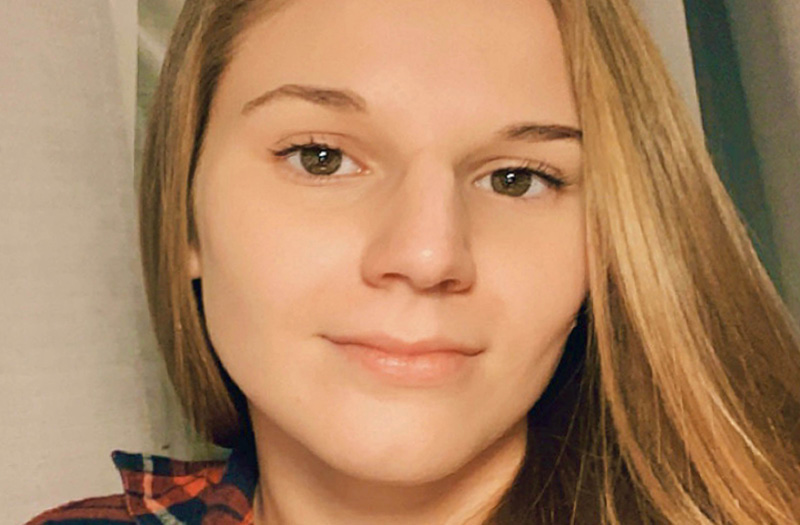
I chose to study Clinical Psychology here at Marywood because not only is the campus welcoming, but the Psychology department is immaculate. All my professors know me by fi...
Marywood University's M.S. in Counseling Psychology offers a comprehensive and interdisciplinary program designed to prepare students for a successful career as a Licensed Professional Counselor (LPC) in Pennsylvania. This program blends the best practices from both counseling and psychology disciplines, providing students with a holistic approach to mental health services.
In our program, you will gain expertise in culturally informed and sensitive practices to improve well-being and address the diverse needs of individuals across the lifespan. Emphasizing a strength-based approach, we focus on the healthy aspects and strengths of our clients, while considering crucial environmental factors such as cultural, sociopolitical, gender, and socioeconomic influences. Our training ensures you develop a broad understanding of both the scientific foundations and practical applications necessary for professional counseling.
Key components of the program include:
Individual, family, and group counseling and psychotherapy
Crisis intervention, disaster, and trauma management
Assessment techniques for diagnosing psychological disorders
Test construction and validation
Research methodologies
Students have the opportunity to gain hands-on experience in the field of psychology right on campus through the Psychological Services Center, where they can apply classroom knowledge in real-world settings by engaging directly with clients, supporting mental health services, and working alongside experienced professionals.
Marywood is ranked #14 Best Value School by U.S. News & World Report’s Best Colleges rankings for 2026, making Marywood a great, centrally located option for students in Northeastern Pennsylvania who want to stay closer to home.
Full-time students in the Counseling Psychology MS program at Marywood University typically complete their degree in five semesters plus summers. This interdisciplinary program integrates Counseling and Psychology to prepare students for Pennsylvania LPC licensure. Graduates gain professional counseling skills, a solid scientific foundation, and must complete clinical (Practicum and Internship) and research (Professional Contribution) experiences to graduate.


I chose to study Clinical Psychology here at Marywood because not only is the campus welcoming, but the Psychology department is immaculate. All my professors know me by fi...
Explore the vibrant community and endless opportunities that await you at Marywood. Attend one of our special events designed specially for you to learn more about Marywood's degree programs, dedicated faculty, and welcoming campus.
Weekday Visits »Marywood University hosts three academic Centers of Excellence on campus; The Center for Law, Justice and Policy, The Center for Urban Studies, and The Mother Theresa Maxis, IHM Center. Each center provides students with the tools and resources to excel in their academic endeavors, fostering a dynamic environment where they can engage deeply with their respective fields of study and make meaningful contributions to their communities and beyond.
Marywood University is accredited by the Middle States Commission on Higher Education (MSHE). / ADDRESS / 3624 Market Street, 2nd Floor West, Philadelphia, PA 19104. | Phone: (267) 284-5000
The mission of the graduate program in school and clinical mental health counseling is to train master’s-level students to be ethical and caring decision-makers who attend to the varied developmental needs of individuals in Pre K-12 educational and clinical mental health settings. Housed in a comprehensive regional institution steeped in the Catholic tradition, the Marywood counseling program, its faculty and curricular experiences, inspire and transform students to learn, lead and serve in a diverse and changing world. Within this context, the education of the whole person is paramount. The standards-based curriculum is rigorous; faculty expectations are high; and students are challenged to understand and apply the ethical dimensions of personal and professional life and to examine their own attitudes, values and beliefs. Bearing this in mind, while endeavoring to synthesize and integrate the general education and the professional preparation of its prospective counselors, the Counseling Program faculty adopts the following program objectives:
To exhibit ethical professional behavior, skills, and dispositions consistent with the ACA and its affiliate standards in order to assume the role of professional counselors in school and clinical mental health settings.
To acquire sufficient knowledge and skills to effectively provide individual, group, and outreach to meet the various concerns of diverse populations in clinical mental health and school settings.
To exhibit professional leadership and advocacy skills necessary to serve as effective agents of change and advance the cause of diverse and underrepresented groups. Likewise, to develop a mastery of consultation skills and the ability to work effectively in multidisciplinary collaborations.
To acquire a comprehensive knowledge base of research principles and assessment in order to be consumers and producers of quality research. Further, to integrate current empirical information to reform and refine all aspects of the professional counselor.
To demonstrate the capacity for self-reflection, self-evaluation, and integration of feedback.
Info For: